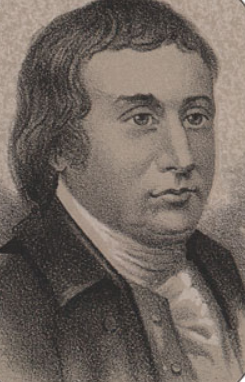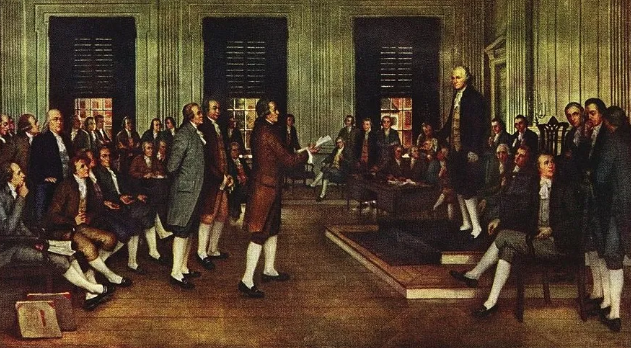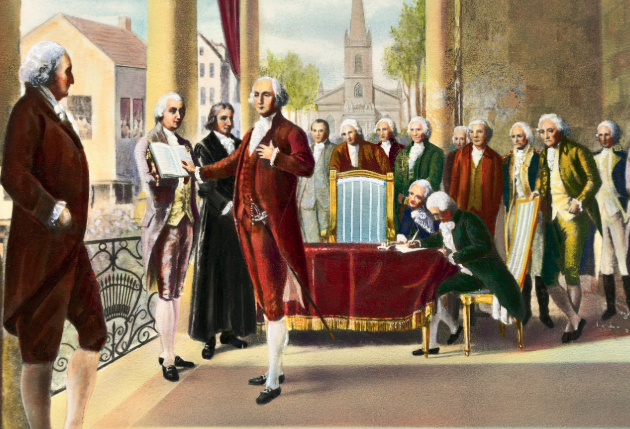The First Presidential Veto
On April 5, 1792, George Washington issued the first Presidential veto.
Washington’s issue was with the constitutionality of the inaugural bill for determining allotment of Congressmen in the House of Representatives.
Allotting the House
When the Constitution was written, it ordered that a census be taken so as to find the appropriate allotment of Delegates to the House of Representatives.
Furthermore, it stated that one Congressman should be chosen for every 30,000 people.
During the interim, a temporary number of Delegates were chosen while the populations were counted.
The Census
The first census was completed at the end of 1791.
The House of Representatives immediately went about composing a bill to set the correct allotment of Congressmen for the following session.
Unfortunately, when the bill was given to President Washington, the decision to affix his signature to the new law was not so cut and dry.
Questionable Calculations
This first bill took the total number of citizens in the United States, divided it by 30,000 and split the result in a fashion that the members of the House of Representatives best reflected the importance of each State.
Unfortunately, there was some question regarding the constitutionality of the bill.
Washington called in his cabinet to discuss whether or not to approve the new allotment.
A Split Cabinet
Thomas Jefferson and Edmond Randolph were against the bill.
In their opinion, the allotment of Congressmen should be determined by the population of each State directly, not by dividing the entire population of the United States.
Alexander Hamilton and Henry Knox were in support of the bill.
Even if there were questions as to the constitutionality of the allotment, it was not severe enough to prevent this necessary bill to be passed.
The First Veto
On April 5, 1792, Washington sided with Jefferson and Randolph and did something that had never happened before...he vetoed the bill.
This was the first time an American President vetoed a law passed by Congress.
Interestingly, when he sent it back, the House of Representatives also did something for the first time...they attempted to override the veto.
In the end, Congress could not muster the votes to push the bill past Washington.
Instead, the Representatives wrote another bill which specifically chose to apportion the numbers by ‘the respective Stats.’
Do you want to learn more about GEORGE WASHINGTON?
Check out these articles:
The Inauguration of George Washington
George Washington: The Early Years
In The Service of my Country - Washington and the Newburgh Conspiracy
Although George Washington has dozens of books written about him, there is a new biography that takes a very interesting point of view.
‘A Life in books’ studies the books Washington read and uses them to reflect on the intellectual point of view of the First Citizen.
If you’d like a copy you can get one through the Amazon affiliate link below (you’ll support this site, but don’t worry, Amazon pays me while your price stays the same).
Want to get fun American Revolution articles straight to your inbox every morning?
Subscribe to my email list here.
You can also support this site on Patreon by clicking here.
Thanks for your support!






